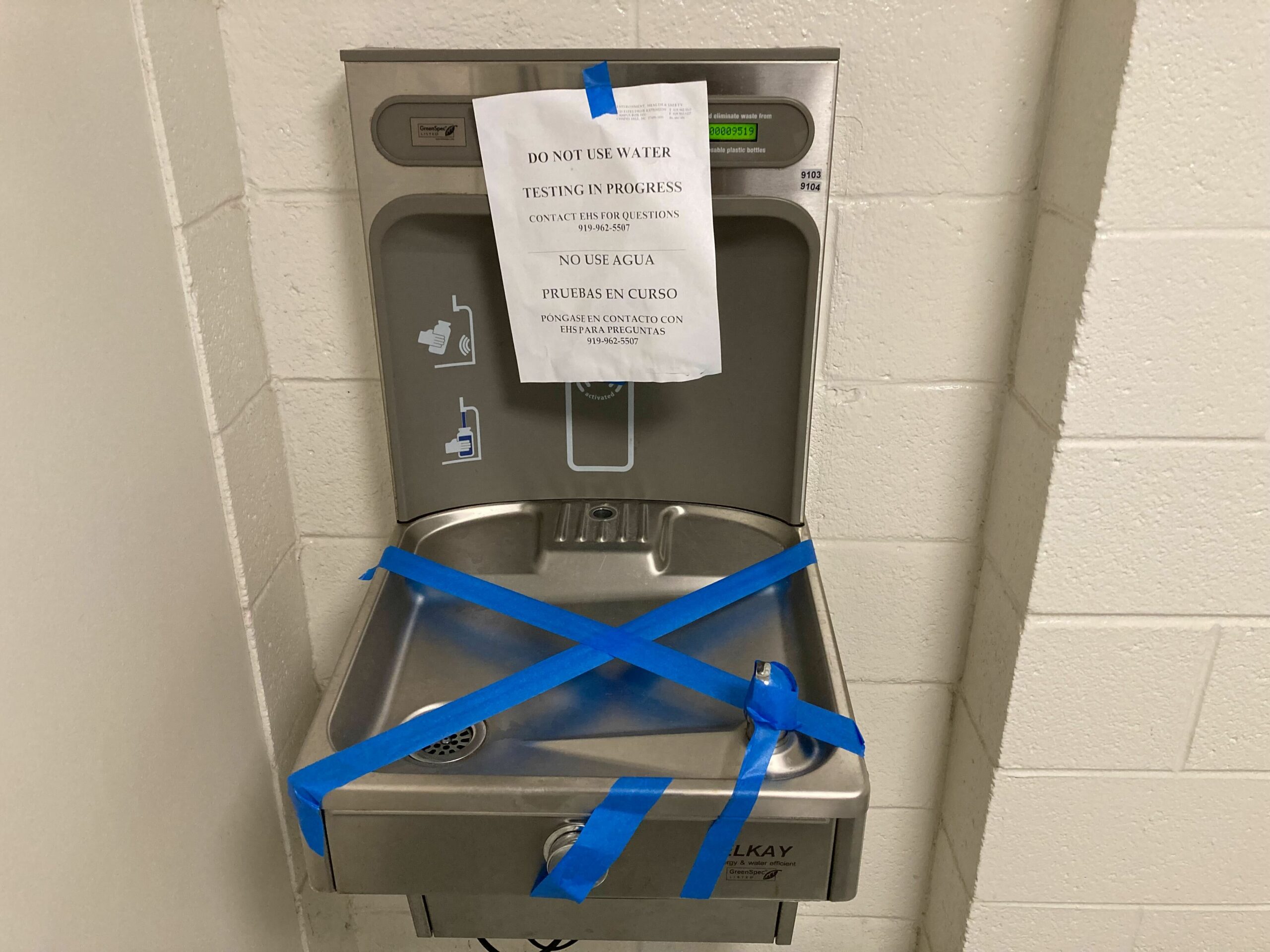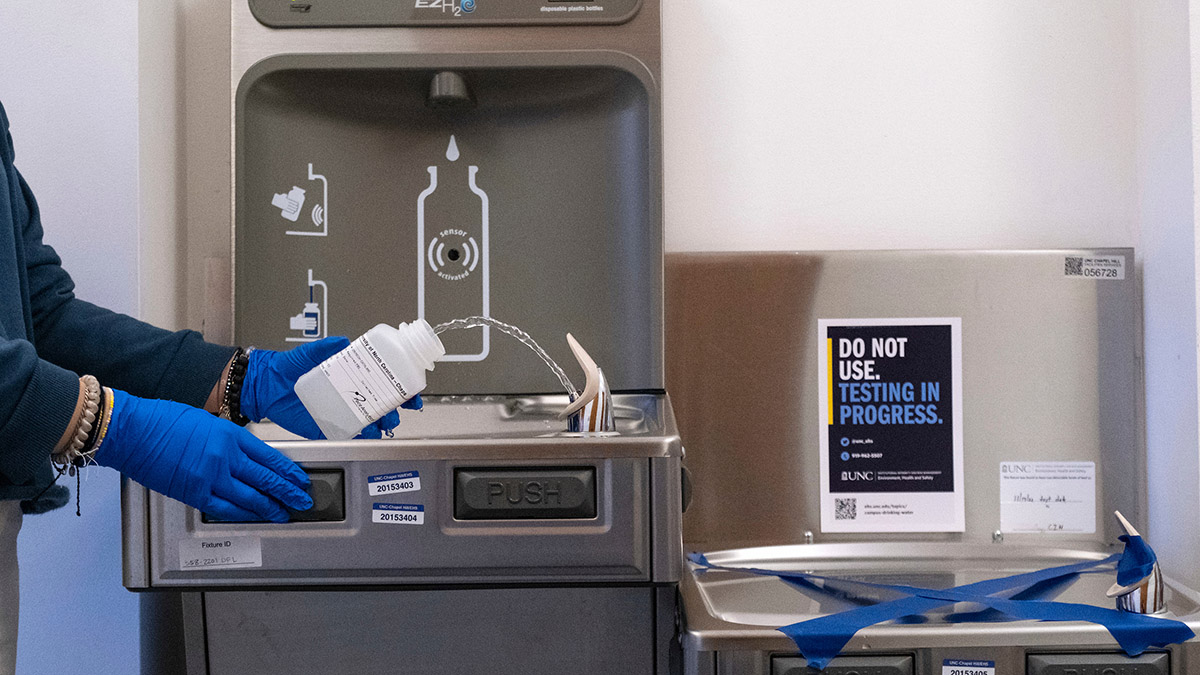Since late August, UNC has been sampling and testing its water across campus to see whether there’s a presence of lead. The weeks-long process began after noticeable levels were detected when testing in Wilson Library.
But who thought to test in the first place? It turns out, a summer project by a UNC professor and visiting students are the ones to thank.
Drew Coleman is the Chair of the Environment, Ecology and Energy Program at UNC, who also runs his own isotope geochemistry lab. While much of his time and research is spent studying some of the oldest rocks on Earth, he also helps coordinate a summer program with the university’s environmental science fields. The program’s goal is to increase diversity in the industry and this summer, he was working with a pair of students from an early college in Robeson County.
In a recent conversation with 97.9 The Hill, Coleman said the program landed on water sampling and lead testing as a good project option for the abbreviated program happening in August.
“Water sampling right here on campus seemed like the right thing to do,” he said, “and we thought it’d be of interest to students to see that they were drinking clean water at Chapel Hill while they were here.”
Michael Sandstrom, a post-doctoral student who specializes in earth science, helped the students visit buildings across the UNC campus and gather water from different sources.
“Once we had all of these samples,” Sandstrom said, “we took them back to the lab and separate out the lead from these drinking water samples. We took them and ran them on a spectrometer [that lets us be] able to look at the lead ratios and concentrations.”
According to both researchers, it didn’t take long to realize their results were very different from expected.
“[It was] pretty much as soon as we started running them,” Sandstom said with a laugh.
“We had deliberately prepared huge samples,” added Coleman, “because we anticipated low, low levels of concentrations of lead. And the samples were running like there was a lot of lead in the machine, so we knew we had problems.”
From there, Coleman emailed university leaders and alerted them of his results. Since then, UNC has taken up the reins of testing duties with the Environment, Health and Safety department, as well as some of its own environmental health students. It’s unclear the last time the university conducted widespread tests for the chemical, likely because there are no federal requirements for colleges to complete those checks. The Environmental Protection Agency does, however, require that from public water systems.
Starting with initial samples in Wilson Library in late August, which returned some traceable lead levels, UNC is now canvassing all of its water fixtures. Seven more buildings returned detectable levels of lead on Thursday, bringing the total to 34 buildings with out-of-service drinking fountains or sinks until the cause is identified.
Coleman said he’s pleased the university is being “very aggressive” in its efforts to check for lead. He also said he feels a sense of accomplishment for the early college students who are partially responsible for the discovery.
“I think that’s the neatest aspect of the story for me,” said the UNC professor. “For years, these students come in and say, ‘I don’t know how to do science, I don’t think I can do this, this is really complicated, I’m not going to understand it,’ and they always do [great work.]
“In this instance,” he continued, “they came up with something that turned out to be really important as well, and I think it really connected with these two students.”
While UNC is in the early stages of figuring out its response to this presence of lead, Coleman had a clear answer to whether he’s been in touch with other universities’ faculty about testing for the chemical.
“Yes,” he said with a wry chuckle.
Both EPA and UNC experts say it takes a significant amount of lead to be ingested in order to experience health problems. UNC researchers aiding the testing, however, acknowledge that there is no safe exposure to the toxic metal in water and that each individual can be affected differently by their exposure levels. The university is providing faculty, staff and students who are concerned about lead exposure appointments to free blood lead level testing. UNC employees are encouraged to contact the University Employee Occupational Health Clinic, while students and post-doctoral fellows should call Campus Health.
Chapelboro.com does not charge subscription fees, and you can directly support our efforts in local journalism here. Want more of what you see on Chapelboro? Let us bring free local news and community information to you by signing up for our biweekly newsletter.












